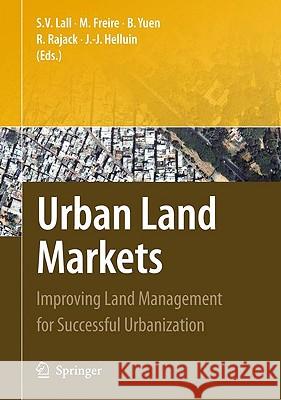Urban Land Markets: Improving Land Management for Successful Urbanization » książka
Urban Land Markets: Improving Land Management for Successful Urbanization
ISBN-13: 9781402088612 / Angielski / Twarda / 2009 / 408 str.
As urbanization progresses at a remarkable pace, policy makers and analysts come to understand and agree on key features that will make this process more efficient and inclusive, leading to gains in the welfare of citizens. Drawing on insights from economic geography and two centuries of experience in developed countries, the World Bank s World Development Report 2009: Reshaping Economic Geography emphasizes key aspects that are fundamental to ensuring an efficient rural-urban transformation. Critical among these are land, as the most important resource, and well-functioning land markets. Regardless of the stage of urbanization, flexible and forward-looking institu- ons that help the efficient functioning of land markets are the bedrock of succe- ful urbanization strategies. In particular, institutional arrangements for allocating land rights and for managing and regulating land use have significant implica- ons for how cities deliver agglomeration economies and improve the welfare of their residents. Property rights, well-functioning land markets, and the management and servicing of land required to accommodate urban expansion and provide trunk infrastructure are all topics that arise as regions progress from incipient urbani- tion to medium and high density."











